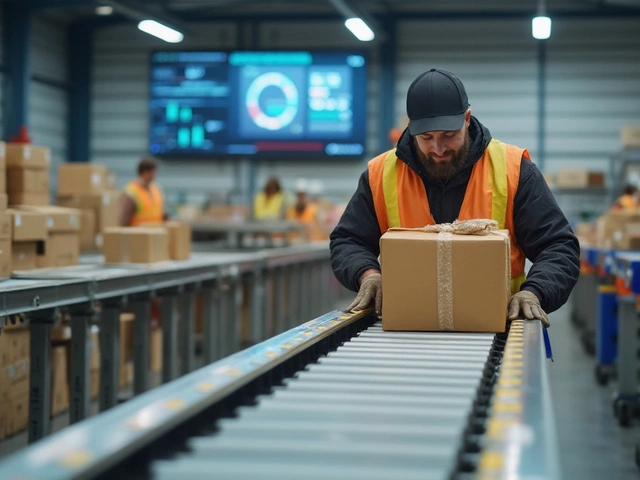Startup Logistics Guide – Simple Tips to Move Faster
Starting a business means juggling a million things at once. One of the biggest headaches is getting your gear, inventory, and office space where they need to be without blowing the budget. Good logistics can be the difference between a smooth launch and a chaotic scramble. Below you’ll find straight‑forward advice on shipping, moving, and storing stuff so you can focus on building your product.
Pick a Logistics Partner That Grows With You
When you’re a fresh startup, you don’t need a giant carrier with a hundred‑step onboarding process. Look for a provider that offers flexible contracts, transparent pricing, and quick turn‑around. Dex Removals, for example, lets you book a single office move or a series of small shipments without locking you into a long‑term deal. Ask for a clear break‑down of costs – mileage, handling fees, and any extra services – so there are no surprise invoices.
Another tip: choose a partner who handles both local and long‑distance moves. Many startups start in a coworking space and later need a warehouse in another city. One company that covers both ends saves you the hassle of managing multiple contracts and helps keep your brand experience consistent for customers.
Save Money on Shipping Without Cutting Service
Shipping costs can add up fast, especially when you’re sending out prototype parts or early inventory batches. Compare the rates of major couriers (UPS, FedEx, DHL) for the exact weight and dimensions you need. Often the cheapest option isn’t the fastest – and for non‑urgent items, a two‑day or even three‑day service can shave off 20‑30% of the price.
Don’t forget to pack smart. Use the smallest box that fits, and fill gaps with recycled paper or bubble wrap. A tighter package means lower dimensional weight fees. If you ship a lot, ask your logistics partner about volume discounts or a prepaid shipping account. Those programs usually cut a flat rate off each parcel, which adds up quickly.
Storage is another area where startups can lose cash. Many providers, including Dex Removals, offer short‑term, climate‑controlled storage at a day‑rate. This is perfect for seasonal inventory or equipment you only need a few months. Avoid long‑term warehouse leases until your sales data shows you really need the space.
Lastly, keep an eye on delivery coverage. Some couriers don’t deliver to remote postcodes or have cut‑off times that don’t match your business hours. Knowing these limits up front lets you set realistic shipping expectations for your customers, which boosts trust and reduces return rates.
Starting a business is stressful enough without worrying about how to get boxes from point A to point B. By picking a flexible logistics partner, packing efficiently, and watching for hidden fees, you can keep your supply chain lean and your cash flow healthy. Need a hand with your first office move or a batch of shipments? Dex Removals is ready to help you hit the ground running.
January 10, 2025
Evelyn Wescott
0 Comments
Starting a logistics company involves more than just a fleet of trucks. It's a journey through market research, strategic planning, and technology adoption. This guide dives into the essential steps to help you establish a successful logistics business. Explore tips on gathering resources, defining your market niche, and leveraging innovation for operational efficiency.




